During the Easter holiday in the Charente-Maritime department of France, we visited the town of Cognac, France and did a cognac tasting tour. Cognac producers, for example, Hennessy (LVMH), Martell (Pernod Ricard), and Rémy Martin have their cognac production base in this town.
The historic house of Rémy Martin is a tourist site in the town. But unfortunately, the house was under renovation and preparing for the upcoming 300 year’s celebration. Discontented with the situation, we went to its shop next door to buy cognac as planned.
There, we got a chance to join a cognac tasting tour. The one-tour was not free, but it was the only English tour of the week during the off-season. Before we decided what to buy, we would like to know the secret of this premium spirit and therefore joined the tour.
To get a detailed insight into the cognac industry, you can join the Cognac masterclass & tasting tour, whose content is independent of any brands and producers. It also takes longer, and of course, you will be able to taste different types of cognac.
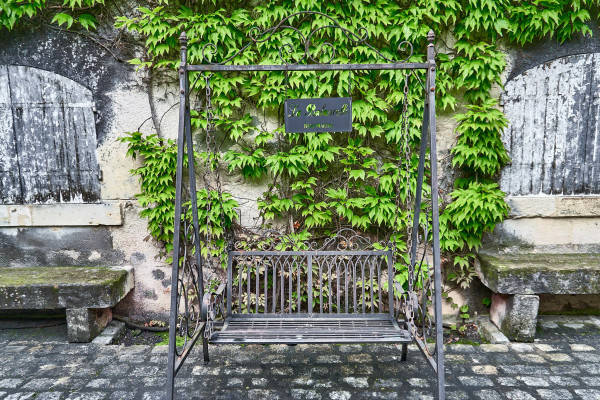
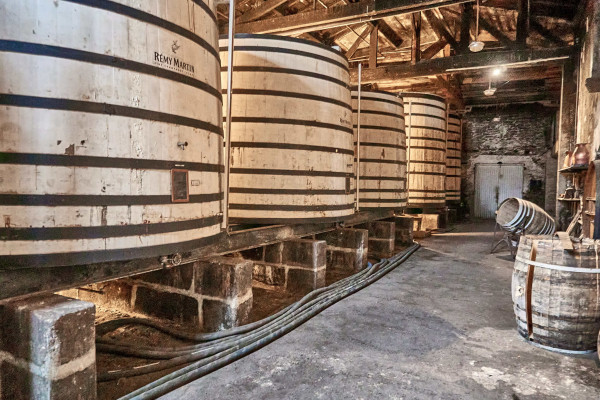
History of Rémy Martin
Our tour guide was a young French lady who spoke perfect English. She gave us a brief introduction to cognac history. The name Rémy Martin came from the company founder, but his grandson, also called Rémy, created the logo and brought the spirit famous worldwide. Rémy Martin has a common name in China, réntóumă (人头马), literally translated as
a man-headed horse. The Rémy Martin logo combines a creature from Greek mythology, which has the upper body of a human and the lower body and legs of a horse, and the zodiac sign of Rémy Martin. So, the Chinese translation is quite close to what the logo is.
Cognac production
Cognac production follows a strict process. Grape harvest time, the length of the fermentation process, distillation methods, and the state-of-art blending technique are unique to cognac production. During the entire production process, more than 70 parameters will affect the taste and the premium quality of cognac.
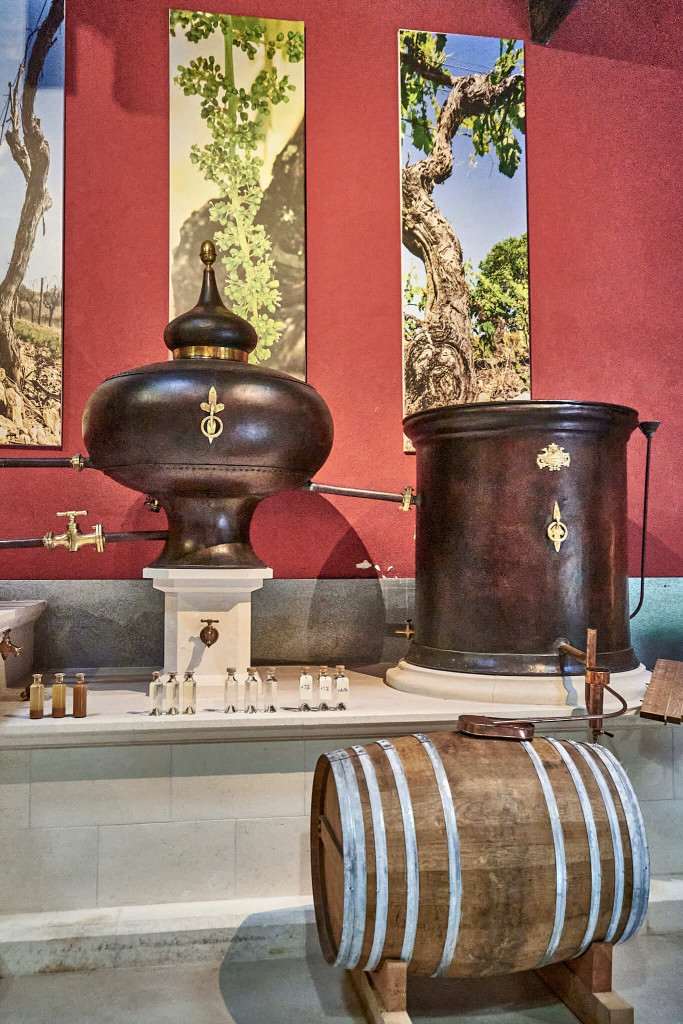
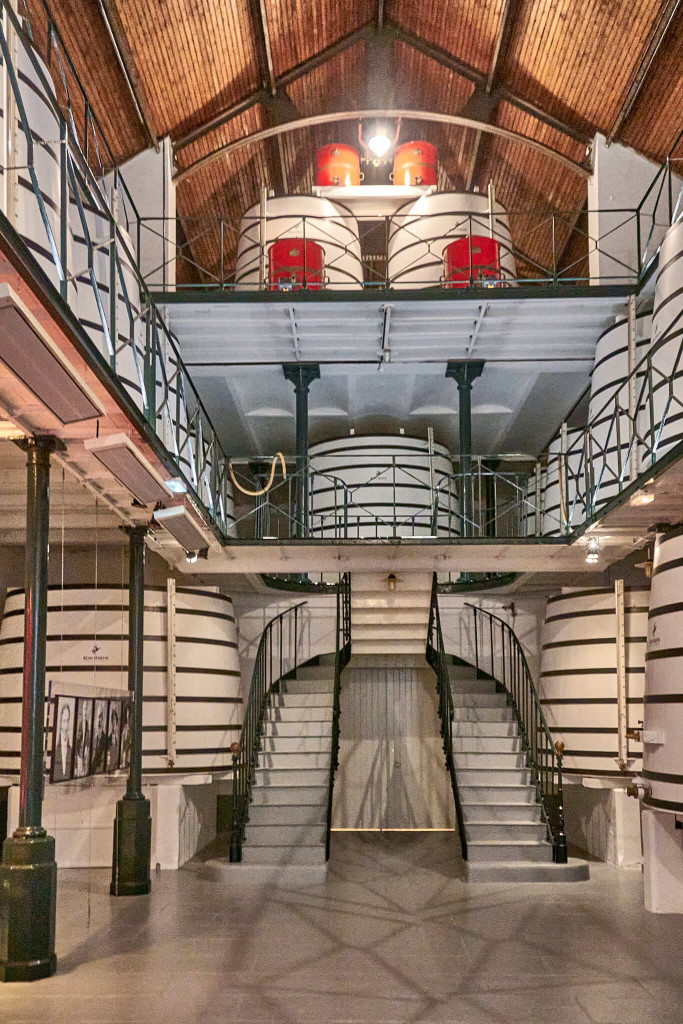
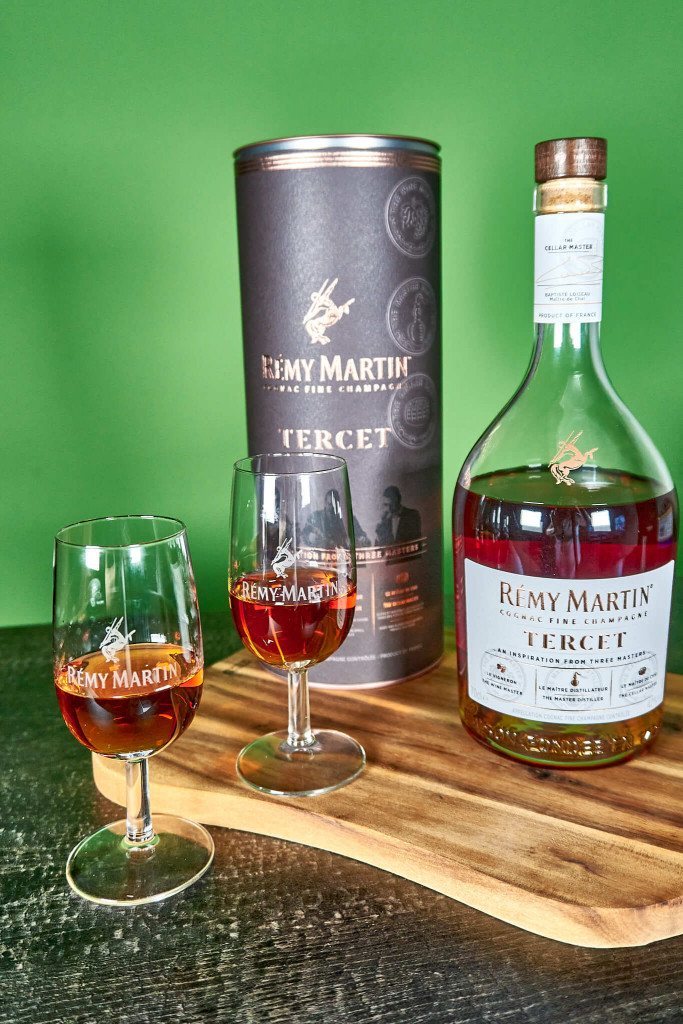
Grapes
Only grape varieties from the Grande Champagne and Petite Champagne cognac regions are used for the cognac. The cognac region has all the elements to grow the best grapes, chalky soil, a microclimate indirectly influenced by the ocean. The chalk layer is deeper in the Grande Champagne region than in the Petite Champagne region. The sample chalk layers in the introduction room show us the difference.
Fermentation
After the grapes are pressed, yeasts are added to the juice. This process converts the fruit sugar into alcohol, and no other additive is added. The result of the fermentation is a white wine with about 7 to 8% alcohol and high acidity.
Distillation
Cognac distillation is performed in a two-stage process. We saw a traditionally shaped Charentais copper pot with its swan’s neck, cooler, and condensing coil. The wine is converted into vapour and subsequently condensed back to the liquid form, called eaux-de-vie.
After the first distillation, only the first and the last part of eaux-de-vie will go through the second distillation process. The result of the second distillation is called eaux-de-vie, a colourless spirit of about 70% alcohol.
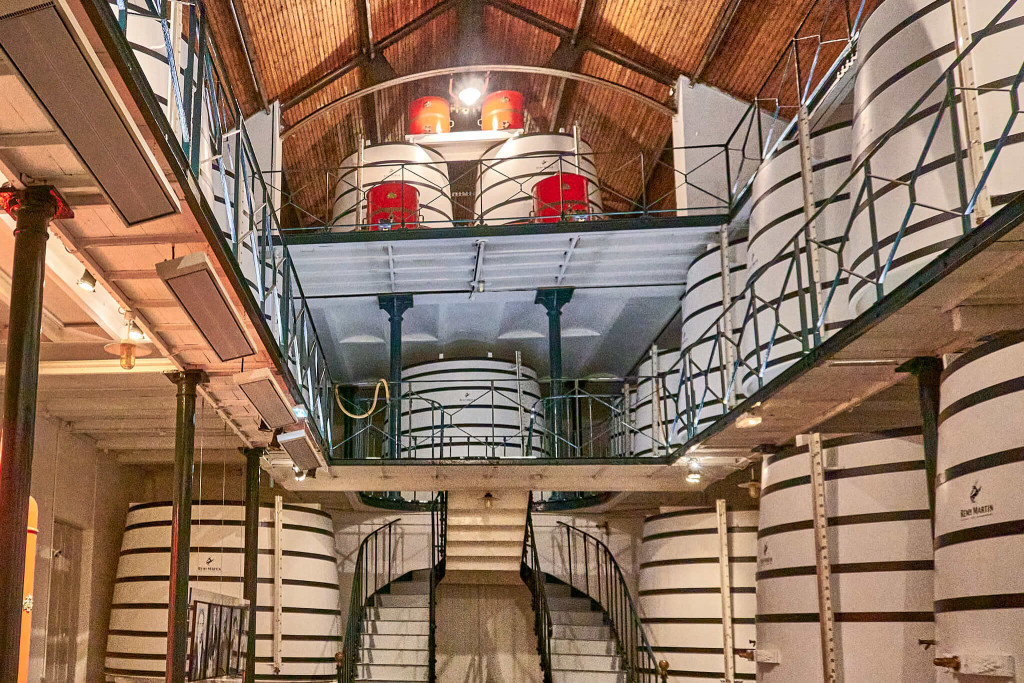
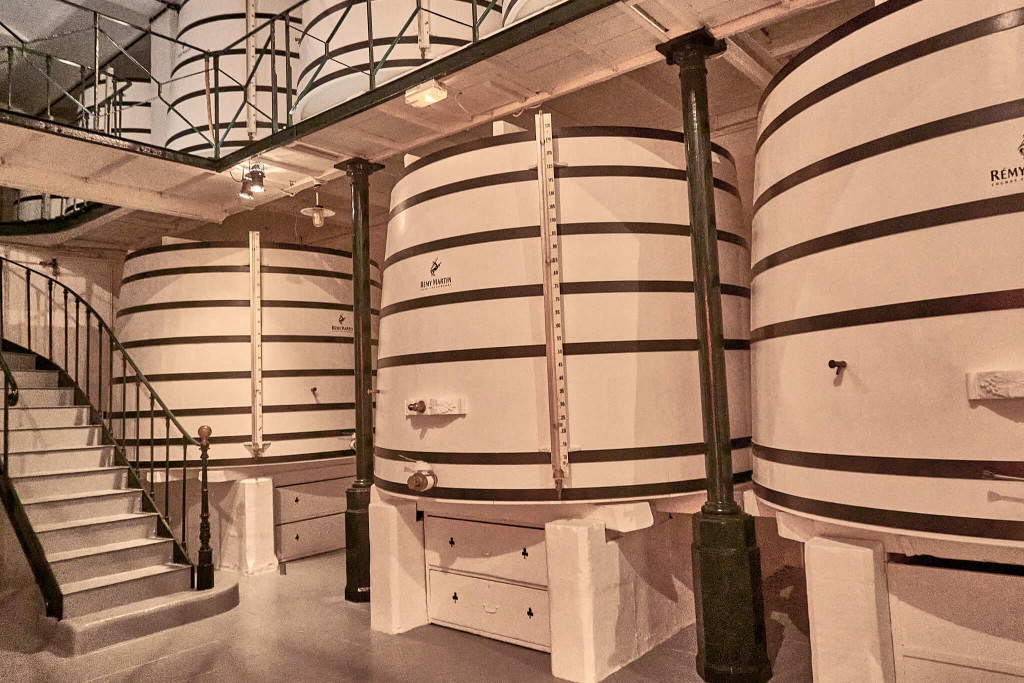
Aging
We entered a large cellar where many oak casks are stored. Visitors are not allowed to take any photos in this area due to the alcohol content in the air. The cognac interacts with the oak casks and evaporates about 3% each year. The volume of liquid is written on each barrel and varies from barrel to barrel.
Blending
Cognac is the result of blending different ages of eaux-de-vie. The blender, also called the cellar master, is the one who takes the most significant care of the blending. In Remy Martin, it takes at least seven years to learn by doing to become a cellar master. The cellar master blends different eaux de vie so that each product, for example, the X.O version, has always had the same aromas and flavours over the years. Since eaux-de-vie is also produced from various vineyards, blending eaux-de-vie is a highly skilled craft comparable to the Master Nose of a perfume factory.
The blending process has been taking place gradually over the years. And, eaux-de-vie is moved from cask to cask and combined. I started to think if there was any way to re-produce this process using modern technology, and the answer would be no. The entire production process ensures that the delicate wine spirit is always at the premium level.
Tasting
In a sample room, tables were set up for the cognac tasting. Our French tour guide introduced a cocktail made of X.O cognac. It was a brilliant way to consume the cognac.
Now, it’s the highlight of the tour, Rémy Martin VSOP tasting. Following the instruction, I gently rotated the glass and observed the clarity of this spirit. Then, I lifted the glass to my nose and tried to reveal floral notes as instructed. Finally, I savoured the cognac and felt its flavours stimulate my taste buds. To combine the ripe fruit and subtle notes of cognac, I ate several pure black chocolates with fatty and bitter flavours placed on a small plate.
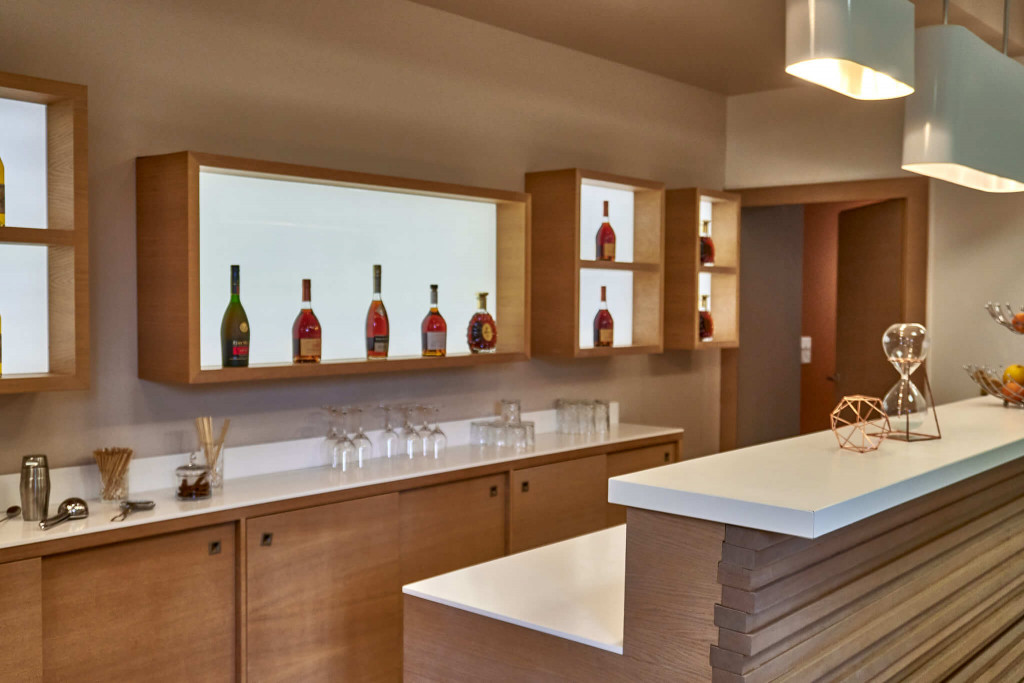
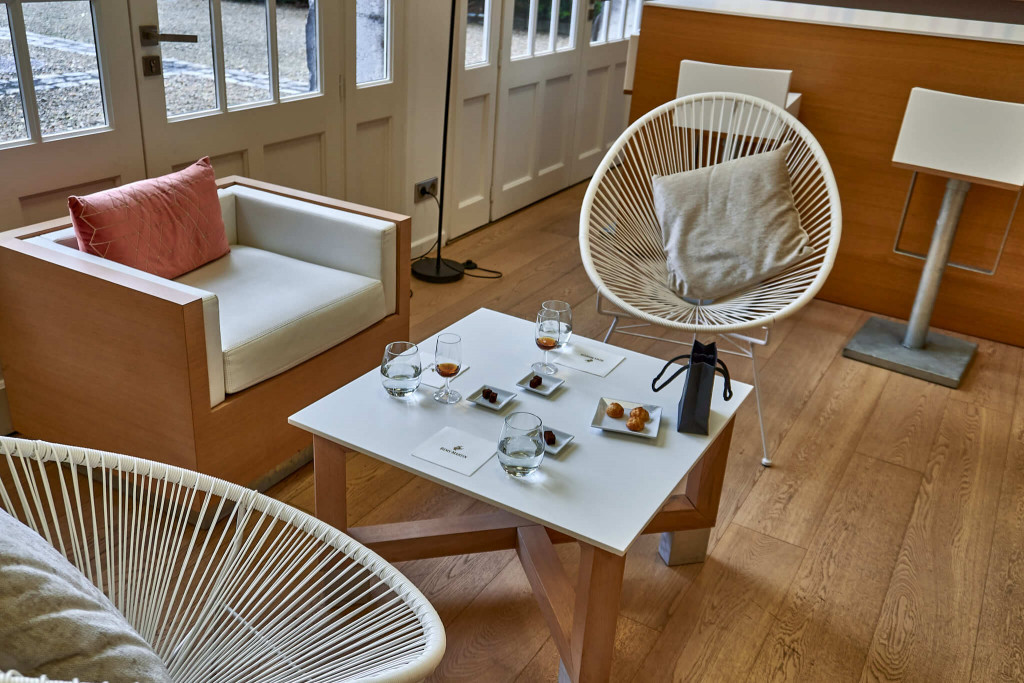
What we bought after the Cognac Tasting Tour
Our tour guide introduced us the Remy Martin Club, a new brand of Rémy Martin sold to the Asian markets only. It has a toasted almond note and flavours of, for example, dried fig and apricot. It is perfect for pairing with flavourful foods.
We bought Rémy Martin Tercet and Remy Martin Club since it is only available in Asian markets. And, of course, the premium X.O version as well. The shop only sells pure cognac products and several limited editions.
Tips for Cognac Tasting Tour
If you plan to do a cognac tasting tour, I suggest you book online to avoid disappointment and have a English-speaking tour guide.
You won’t be able to drive after tasting several cognacs since the alcohol control is restricted in France. In addition to that, the town of Cognac is very scenic and has several interesting sites to offer. So it’s better to stay in Cognac for a night or two.
Hotels such as Hôtel Chais Monnet & Spa and Château Pellisson are just in the town centre and within walking distance to the Remy Martin house.
